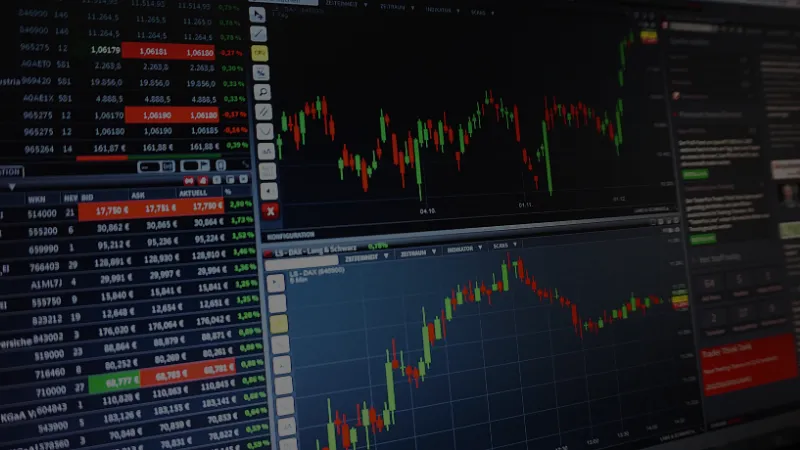
Gone are the days when traders and investors needed to carry physical trade certificates. In 2023, you must open a Demat account online to enjoy the benefits of dematerialisation. Dematerialisation is the process of converting physical shares into electronic shares. Besides stocks or shares, other securities can also be dematerialised in India. You might have some physical shares from earlier investments. It is crucial to dematerialise them for safe storage in a Demat account. Continue reading to understand the process of dematerialising physical shares in India.
Understanding Physical and Dematerialised Shares in India
Before discussing the dematerialisation process, let us understand the basics. Physical shares refer to the holding of shares in the traditional way. Paper certificates are used to represent ownership of physical shares. Company registrars usually issue these paper certificates. Your name, number of shares held, and other details are mentioned on the physical share certificate. You must deliver the certificates directly to the buyer when selling physical shares. Since paper certificates can get lost or damaged, most investors do not prefer them.
The Dematerialisation process (via Demat accounts) was launched in 1996 in India. Before 1996, investors needed to carry paper-based share certificates. However, you have the facility to store shares in dematerialised or electronic format in a Demat account in 2023. Dematerialised shares are stored in your Demat account electronically. You can sell or purchase electronic shares through stock exchanges. All trades will be settled electronically, thus reducing the need for physical presence or paper certificates.
Step-by-Step Process to Dematerialise Physical Shares
Do you have any existing physical share certificates? Follow these steps to convert them into dematerialised form:
Step 1: Apply for a Dematerialisation Account
The first step is to open a Demat account online with a broker. You cannot apply for dematerialisation without a Demat account in India. Search for a stockbroker in India which also serves as a depository participant (registered with NSDL or CDSL). Such a broker will help you with Demat account and investment account services. Individuals prefer brokers in India because they offer high-performance trading platforms for research and informed decision-making. While applying for a Demat account online, you must provide some details. Applicants also upload their KYC (Know Your Customer) documents for verification.
Step 2: Ask for a DRF
Ask your broker or depository participant for a Dematerialisation Request Form (DRF). It is the form used for dematerialising physical shares in India. You will need to enter details in the DRF, like Demat ID, company name, ISIN, certificate number, distinctive number, and holder(s). It is crucial to note that all details must be accurate in the DRF. If there is a mismatch, the request for dematerialisation might be denied.
Step 3: Surrender Your Certificates
You must have proper proof to back up the details mentioned in the DRF. The broker or depository participant will require physical paper certificates to match the details mentioned in the DRF. You are also required to provide your physical shares or paper certificates. You cannot keep the same shares in both physical and dematerialised forms.
Step 4: Submit the DRF
After submitting the DRF and physical certificates, wait for some time. The broker will generate a dematerialisation registration number, which is added to the DRF. The form (along with paper certificates) is transferred to the respective company’s Registrar and Transfer agent. Brokers or depository participants can transfer the DRF electronically to the R&T agent of the respective company.
Step 5: Verification
The R&T agent of the respective company will cross-check your DRF. The R&T agent also verifies physical certificates. The verification of physical certificates may take some time. It usually takes around 2-3 weeks for the R&T agent to verify all details. Upon verification, you will receive an e-request to dematerialise the shares. The shares are credited to your Demat account when the request is confirmed. The entire process will take place only when you open a Demat account online. Do not forget that dematerialised shares can only be kept in a Demat account.
What Happens After I Have a Demat Account?
A Demat account is not only used to hold electronic shares. It can hold a wide range of securities, like SIP mutual funds, bonds, and IPO shares. These securities will be stored in your Demat account until you decide to sell them. There is no need to submit DRF after having a Demat account in your name. Once investors have respective Demat accounts, securities are automatically dematerialised. However, the trading account must be linked with the Demat account to dematerialise securities quickly. Any new shares purchased via a stock exchange will be dematerialised without your involvement.
Once you have a Demat account, it can be used for portfolio monitoring. You can view the holdings anytime by entering your Demat account credentials on a media device. However, a Demat account includes certain charges, like Annual Maintenance Charges and custodian fees. Your broker might also charge you for dematerialising physical shares or other securities.
Conclusion
You can open a Demat account online and hold securities in dematerialised form. However, you might be having some physical shares from earlier transactions. You can submit the Dematerialisation Request Form to the broker in such a case. Don’t forget to submit paper certificates along with the form to the broker. Your physical shares will be dematerialised within two to three weeks. Dematerialise your physical shares now!


